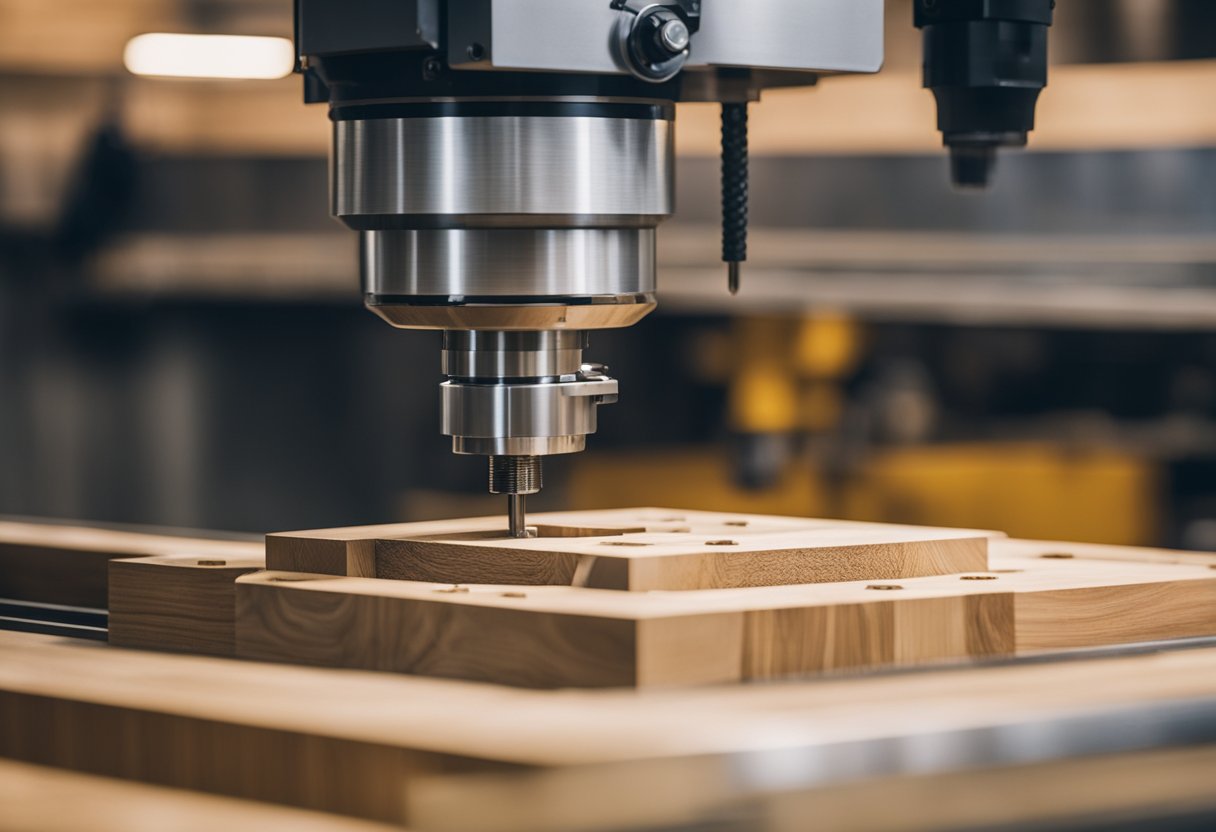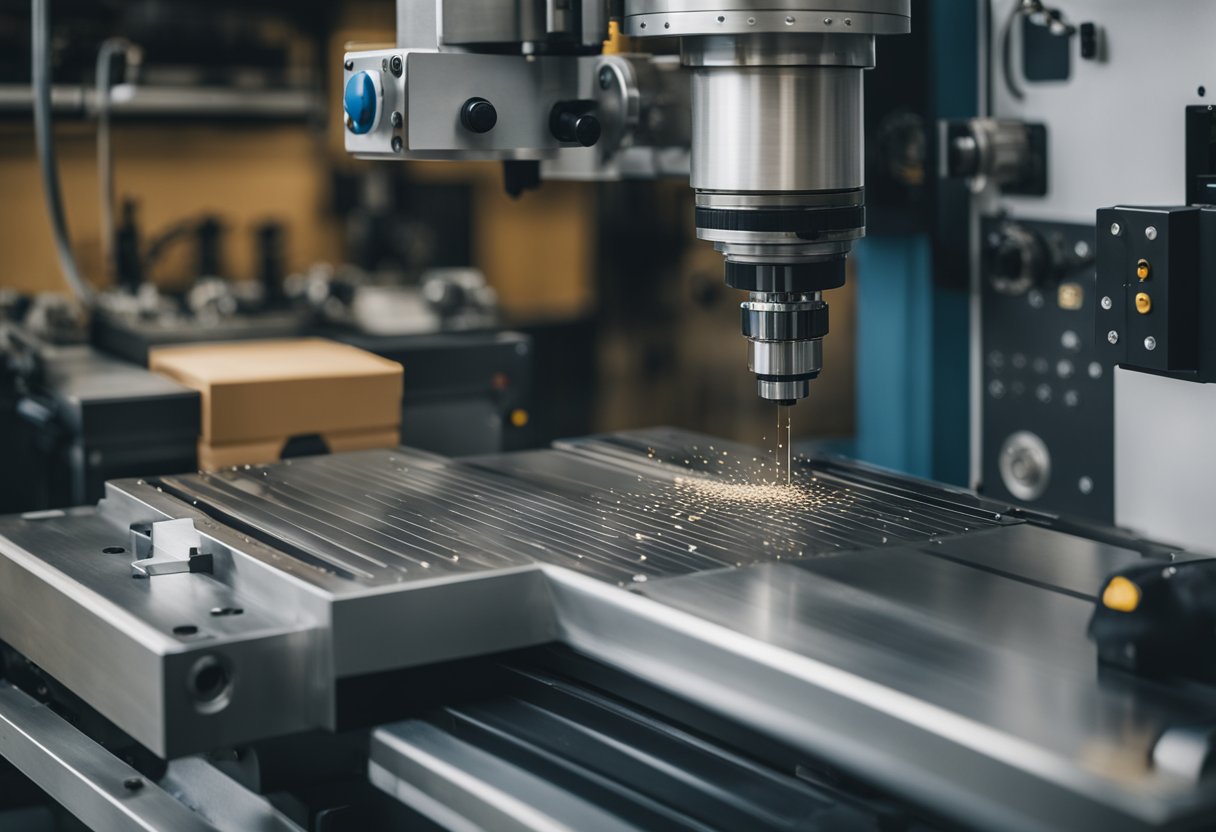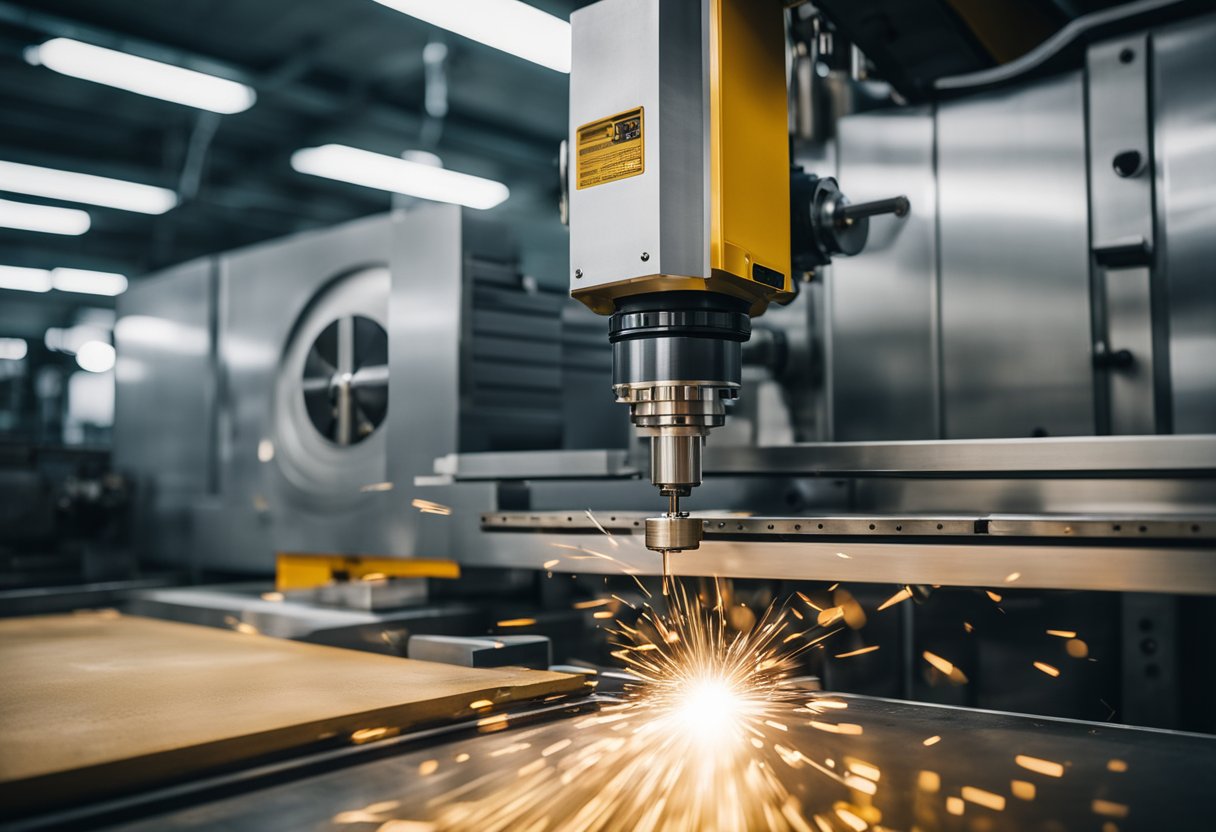CNC Milling Machine in Oakland: A Comprehensive Guide
CNC milling machines have revolutionized the manufacturing industry by providing precision and accuracy in the production of complex parts.
Oakland, a city in California, is home to several companies that specialize in CNC machining. These companies offer a wide range of services, including CNC milling machine Oakland, precision CNC machining, and CNC machining.

CNC milling machine Oakland is a process that involves the use of computer-controlled machines to remove material from a workpiece.
The machines are programmed to follow specific instructions, which ensures that the final product is accurate and precise. This technology has made it possible to produce complex parts that were previously impossible to manufacture using traditional methods.
Precision CNC machining is another service that is offered by companies in Oakland. This process involves the use of CNC machines to produce parts that have tight tolerances and require high accuracy.
The machines are capable of producing parts that are within a few microns of the desired specifications, which makes them ideal for applications that require high precision.
CNC machining is a versatile technology that can be used to produce a wide range of parts, including those that are used in the aerospace, medical, and automotive industries.
CNC Milling Fundamentals
Understanding CNC Milling
CNC milling is a process used to create complex parts and components with precision and accuracy. It involves using computer-controlled machines to remove material from a workpiece to create the desired shape and design.
This process is widely used in manufacturing and engineering industries to produce high-quality, customized parts.
CNC milling machines use a variety of cutting tools to remove material from a workpiece. The cutting tools can move in multiple directions, allowing for the creation of complex shapes and designs.
The machines can also operate on multiple axes, with 5-axis machining being the most advanced and precise.
Types of CNC Milling Machines
There are several types of CNC milling machines, each with its own unique features and capabilities. Some of the most common types include:
- Vertical milling machines: These machines have a vertical spindle that moves up and down, allowing for the creation of vertical cuts and designs.
- Horizontal milling machines: These machines have a horizontal spindle that moves side to side, allowing for the creation of horizontal cuts and designs.
- 5-axis milling machines: These machines can move in five different directions, allowing for the creation of complex shapes and designs with precision and accuracy.
- Gantry milling machines: These machines have a large frame that spans the length of the work area, allowing for the creation of large parts and components.
Materials and Tools

Common Machining Materials
CNC milling machines are capable of cutting a wide range of materials, including steel, titanium, stainless steel, brass, aluminum, copper, and plastics.
Each material has its own unique properties that must be taken into account when machining. For instance, steel is a very hard material, which requires a cutting tool with a high hardness and wear resistance. On the other hand, plastics are much softer and require a cutting tool with a lower hardness.
Cutting Tools and Equipment
Cutting tools are an essential component of any CNC milling machine. They come in a variety of shapes and sizes, and each type is designed for a specific purpose.
Some of the most common cutting tools include end mills, drills, and reamers.
End mills are used to cut slots and pockets in a workpiece, while drills are used to create holes. Reamers are used to enlarge existing holes to a precise size.
In addition to cutting tools, CNC milling machines also require a variety of other equipment, such as tool holders, collets, and vices.
Tool holders are used to securely hold cutting tools in place, while collets are used to hold workpieces in place. Vices are used to clamp workpieces to the milling machine table, ensuring that they remain in place during the machining process.
Applications and Industries

CNC milling machines have a wide range of applications and can be used in various industries. Here are two of the most common applications of CNC milling machines.
Prototyping and Product Development
CNC milling machines are often used in prototyping and product development. They allow engineers and designers to create precise and accurate prototypes of their designs.
CNC milling machines can produce complex shapes and parts with high accuracy, making them ideal for creating prototypes for products in various industries such as electronics, aerospace, and automotive.
With CNC milling machines, designers can quickly create and test multiple iterations of their designs. This allows them to refine and improve their designs before moving on to the manufacturing stage.
CNC milling machines are also used in prototype manufacturing, enabling engineers to produce prototypes quickly and efficiently.
Precision Components and Assemblies
CNC milling machines are also used to produce precision components and assemblies.
CNC milling machines can produce parts with high accuracy, making them ideal for creating parts for industries such as aerospace, medical, and electronics.
CNC milling machines can produce parts with complex shapes and tight tolerances, making them ideal for creating precision components and assemblies. They can also produce parts with a high degree of repeatability, ensuring that each part is identical to the next.
Technical Considerations

Tolerances and Precision
When it comes to CNC milling machines in Oakland, technical considerations must be taken into account to ensure that tight tolerances and precision machining can be achieved.
Tolerances refer to the allowable range of variation in the dimensions of a part or component, while precision machining pertains to the accuracy and repeatability of the machining process.
To achieve tight tolerances, it is essential to have accurate technical drawings or CAD files that specify the exact dimensions and tolerances required for the part. Reverse engineering can also be used to create CAD files from existing parts if necessary.
Additionally, it is important to work with a precision machine shop that has the expertise and equipment to produce parts with the required tolerances.
CNC machine shops in Oakland typically have a range of CNC milling machines that can produce parts with tolerances as tight as a few thousandths of an inch.
CAD/CAM Integration
CAD/CAM integration is another important technical consideration when it comes to CNC milling machines in Oakland.
CAD/CAM software allows for the creation of complex part geometries and tool paths, which can then be translated into machine code for the CNC milling machine.
The integration of CAD/CAM software with the CNC milling machine allows for greater accuracy and efficiency in the machining process.
It also allows for the simulation of the machining process before the actual machining takes place, which can help to identify potential issues and optimize the machining process.
Frequently Asked Questions
What are the top-rated CNC milling machines for woodworking in Oakland?
When it comes to woodworking, the top-rated CNC milling machines in Oakland are those that can handle a variety of materials, including hardwoods, softwoods, and composites.
Some of the most popular brands include Haas, ShopBot, and Laguna, which offer a range of sizes and capabilities to suit different needs.
Which CNC milling machines are best suited for metalworking in the Oakland area?
For metalworking in Oakland, you'll want to look for CNC milling machines that are durable, precise, and capable of handling a range of materials, including aluminum, steel, and titanium.
Some of the top brands in this category include Mazak, Okuma, and DMG Mori, which offer high-speed machining capabilities and advanced features like automatic tool changers and coolant systems.
How does the cost of CNC milling vary for different materials?
The cost of CNC milling can vary widely depending on the type of material being used.
For example, softer materials like wood and plastic may be less expensive to machine than harder materials like metal or ceramic.
Other factors that can impact the cost of CNC milling include the complexity of the design, the size of the part, and the number of pieces being produced.
What factors contribute to the high cost of CNC milling services?
There are several factors that can contribute to the high cost of CNC milling services, including the cost of equipment, the skill level of the operator, and the complexity of the design.
Additionally, the cost of raw materials, tooling, and other supplies can also impact the overall cost of CNC milling.
How long does it typically take to become proficient in CNC milling operations?
Becoming proficient in CNC milling operations can take anywhere from a few weeks to several months, depending on the individual's background and experience.
It's important to receive proper training and practice regularly to develop the necessary skills and knowledge to operate CNC milling machines safely and effectively.
Where can I find custom CNC milling services in Oakland?
There are several companies in Oakland that offer custom CNC milling services. These include machine shops, fabrication shops, and specialty manufacturers.
Some popular options include East Bay Precision Manufacturing, Bay Area Machine, and Oakland Machine Works.
